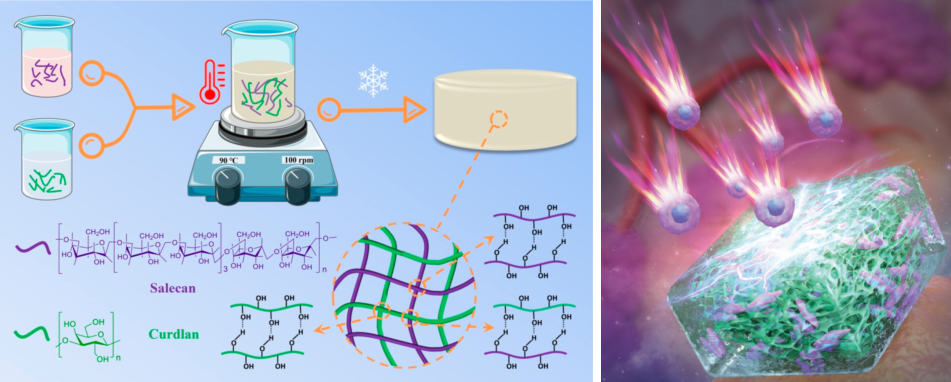- Newsroom
- Research Progress
- Academic Events
- Join Us
1. Previous studies to design polysaccharide-based hydrogels for separation devices (ACS Sustainable Chemistry & Engineering, 2019; Carbohydrate Polymers, 2019; International Journal of Biological Macromolecules, 2020, 145, 1049–1058; Carbohydrate Polymers, 2019, 209, 101–110).
2. Designing polysaccharide-based hydrogel scaffolds for tissue engineering (ACS Applied Materials & Interfaces, 2020, Back Cover; Carbohydrate Polymers, 2020; Journal of Agricultural and Food Chemistry, 2020, Back Cover; Carbohydrate Polymers, 2019, 224, 115208).

These works was financially supported by the National Natural Science Foundation of China (31800833 and 21977081), Zhejiang Provincial Natural Science of Foundation of China (Z19H180001), the Wenzhou Medical University and Wenzhou Institute of Biomaterials & Engineering (WIBEZD2017001-03).